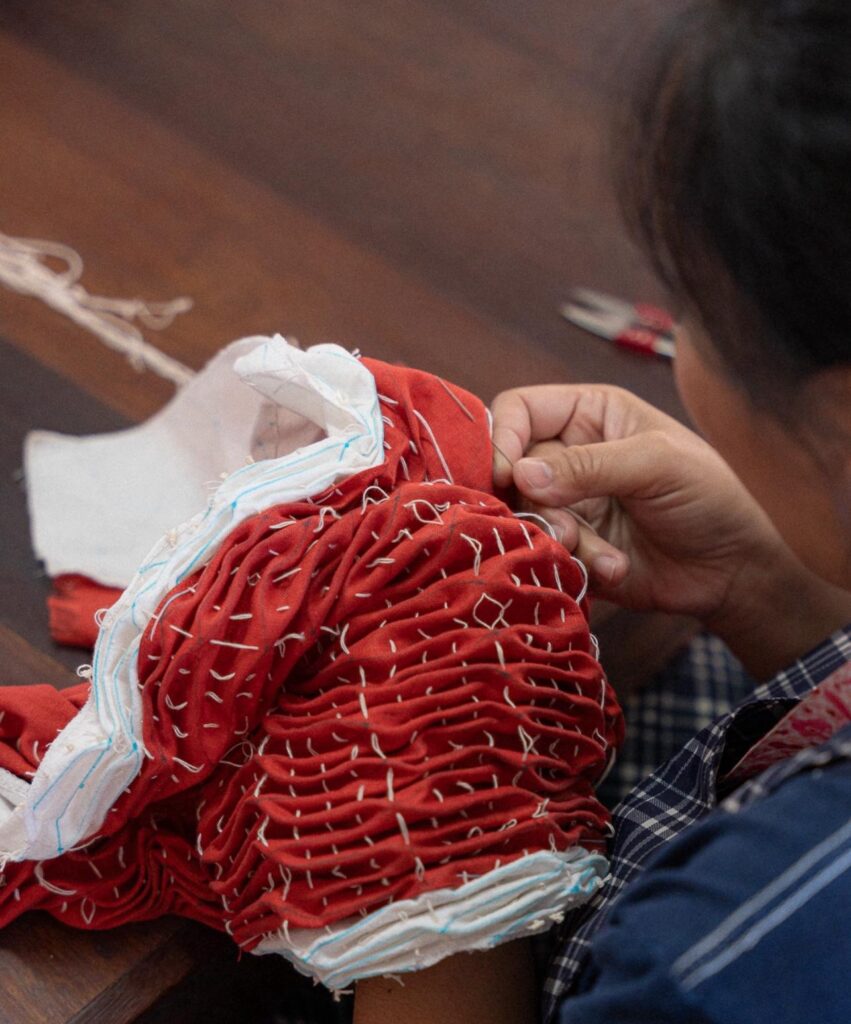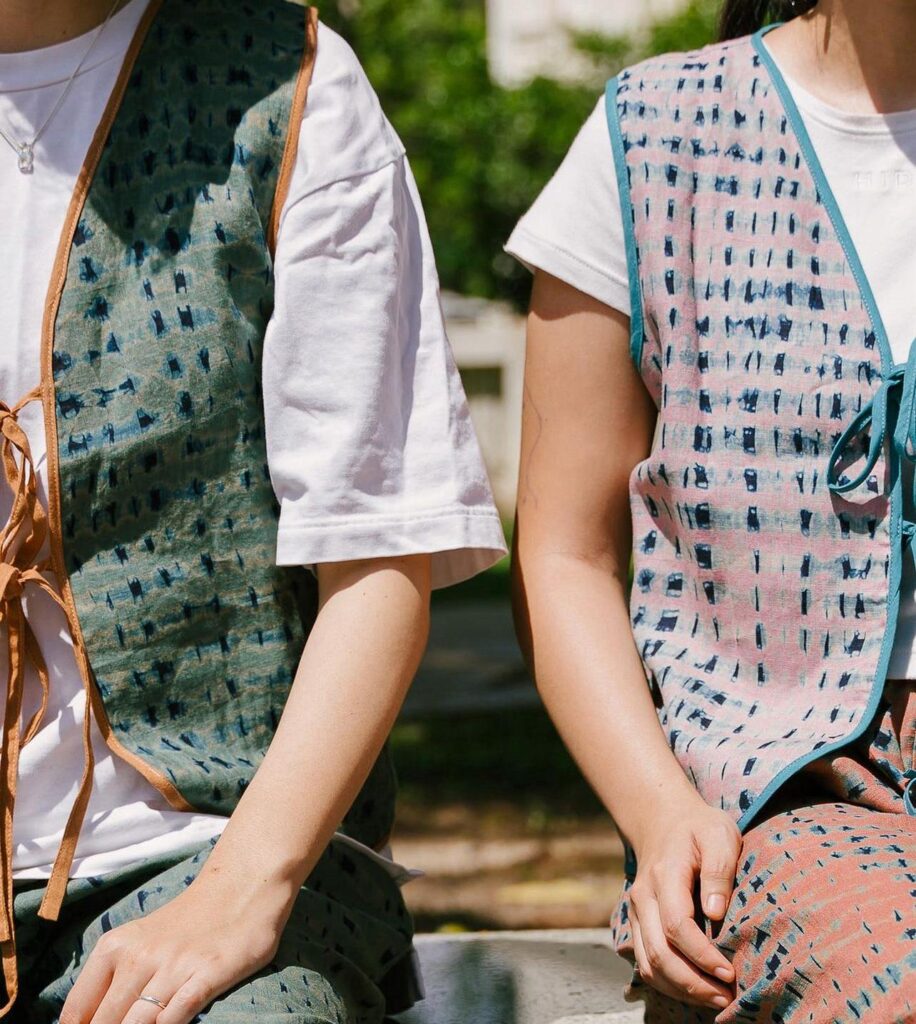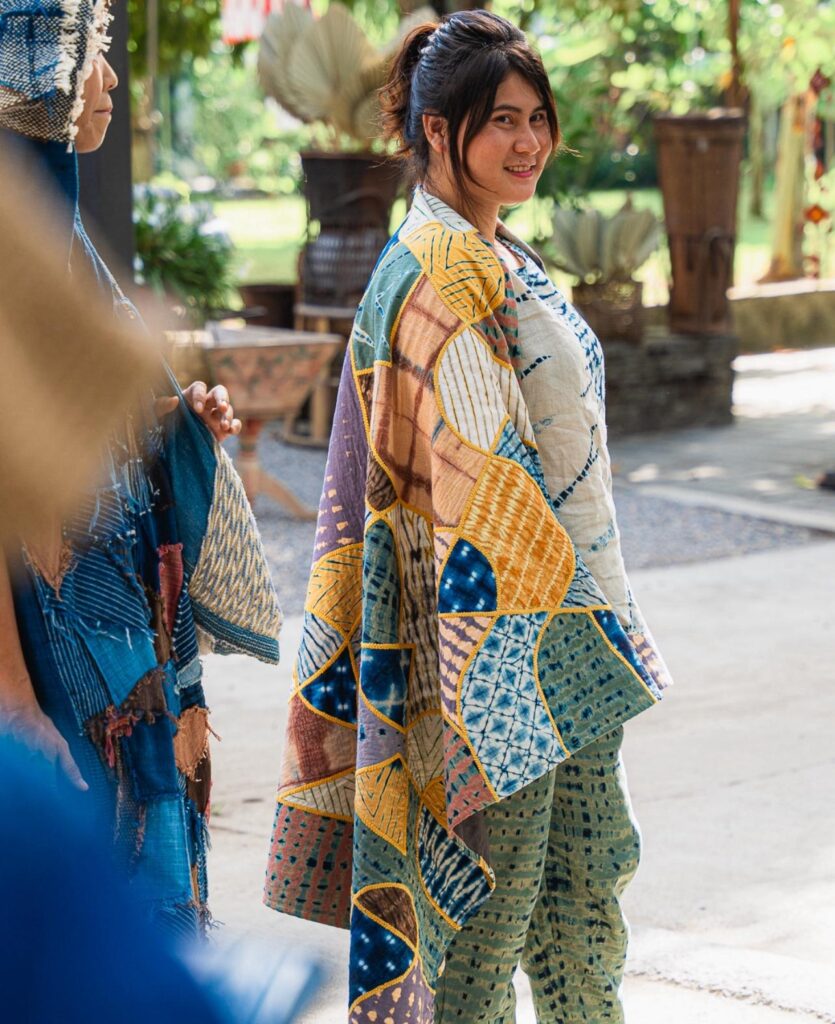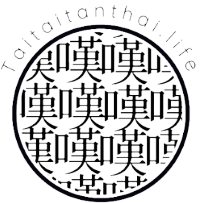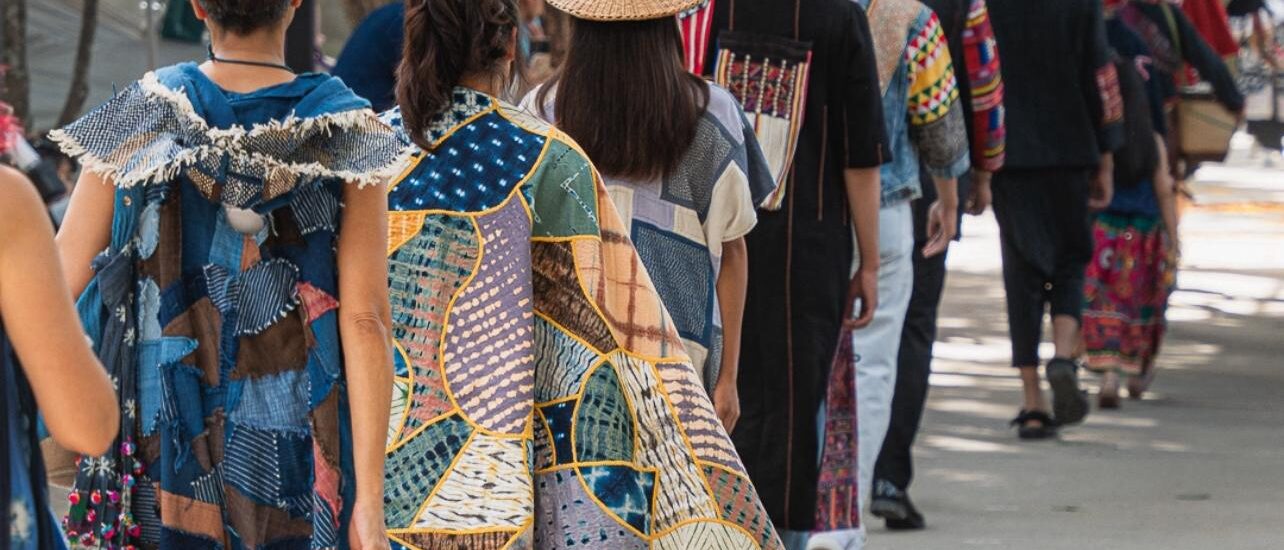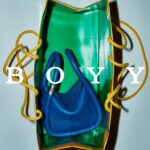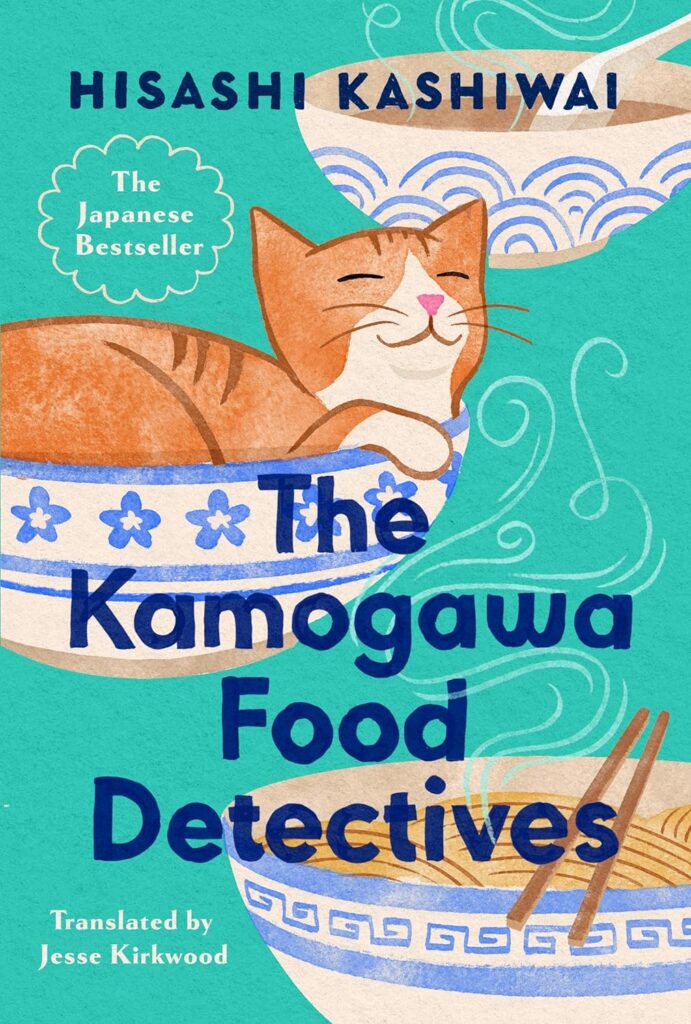
One of the Xmas presents my husband gifted me was a book titled The Kamogawa Food Detectives, written by Hisashi Kashiwai. The novel is about a retired detective turned diner chef and owner, who on top of running a restaurant, also helps his clients to recreate dishes they have had in the past based on little clues they managed to remember. My husband explained to me the reason he picked this book was mainly because the story was based in Kyoto, where I spent a wonderful year as an exchange student. Indeed, it was very nostalgic reading the stories. The dishes described and the places mentioned transported me back twenty-two years when I was having the time of my life in Japan.
This trip down memory lane inspired me to write about Slowstitch Studio, the first Thai fashion brand that will kickstart 2024 here at Taitaitanthai.life.
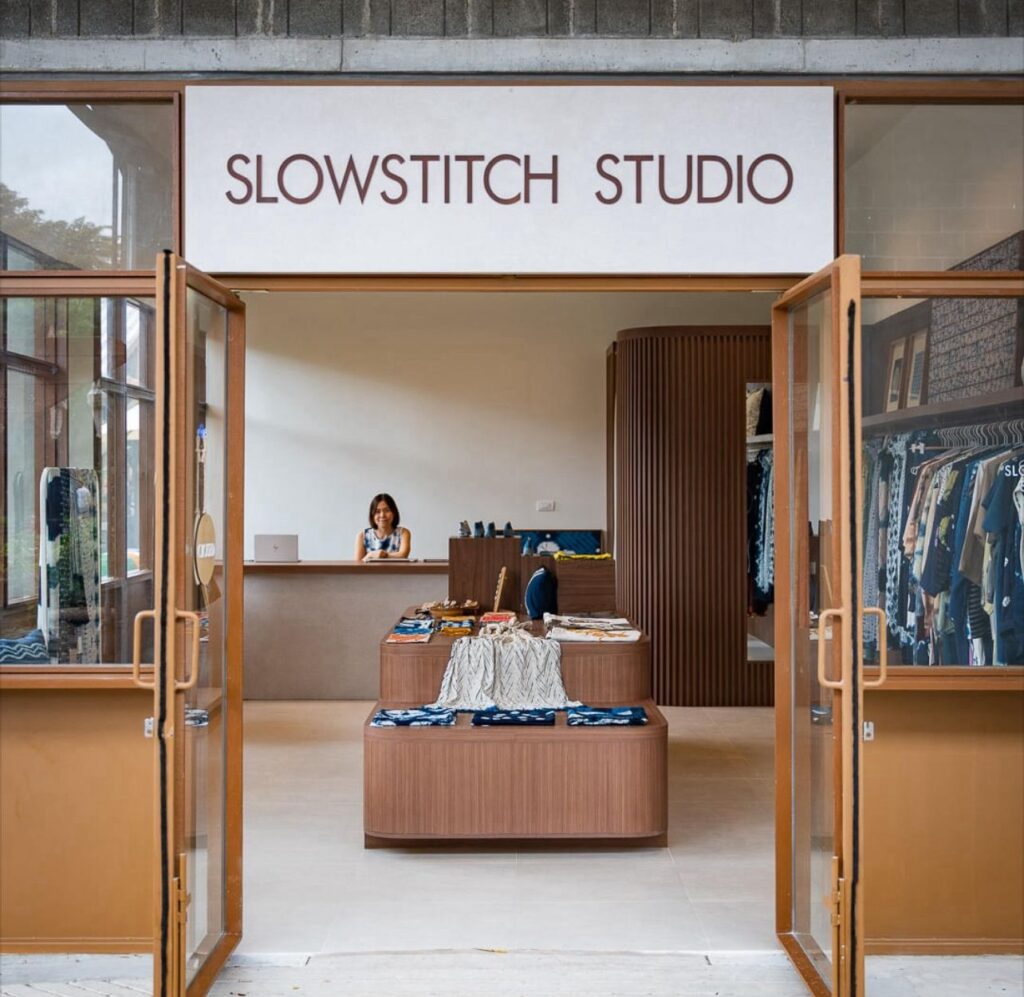
Tie-Dyed Memories of Kyoto
When I came across Slowstitch Studio, the products I saw reminded me of the tie-dyed garments I came across in Kyoto. When I studied in Japan, especially in the ancient capital of Kyoto, this traditional art was still being held in high regard. Contrary to other parts of the world where tie-dye is seen as something belonging to hippies, customers in Japan were often willing to pay good money for a fine tie-dyed garment.
Indeed, the founding of Slowstitch Studio did have something to do with Japan. It all began in 2015 when co-founders Serge and Ann met by chance in rural Japan while studying under the same traditional textile craftsman. Now living in Chiang Mai, the duo continues to create one-of-a-kind Japanese-inspired clothes from Thailand, accessories, and textiles for home and living that aim to blend contemporary designs with traditional ways of craftsmanship.
“Our designs are crafted with a focus on embracing the essence of human touch, incorporating journeys and explorations in pattern creation. We view patterns not merely as decorative elements but as symbolic representations of nature, balance, order and interconnectedness. Inspiration for our designs often comes from old masters’ works, our environment and our own reinterpretations of traditional designs.”
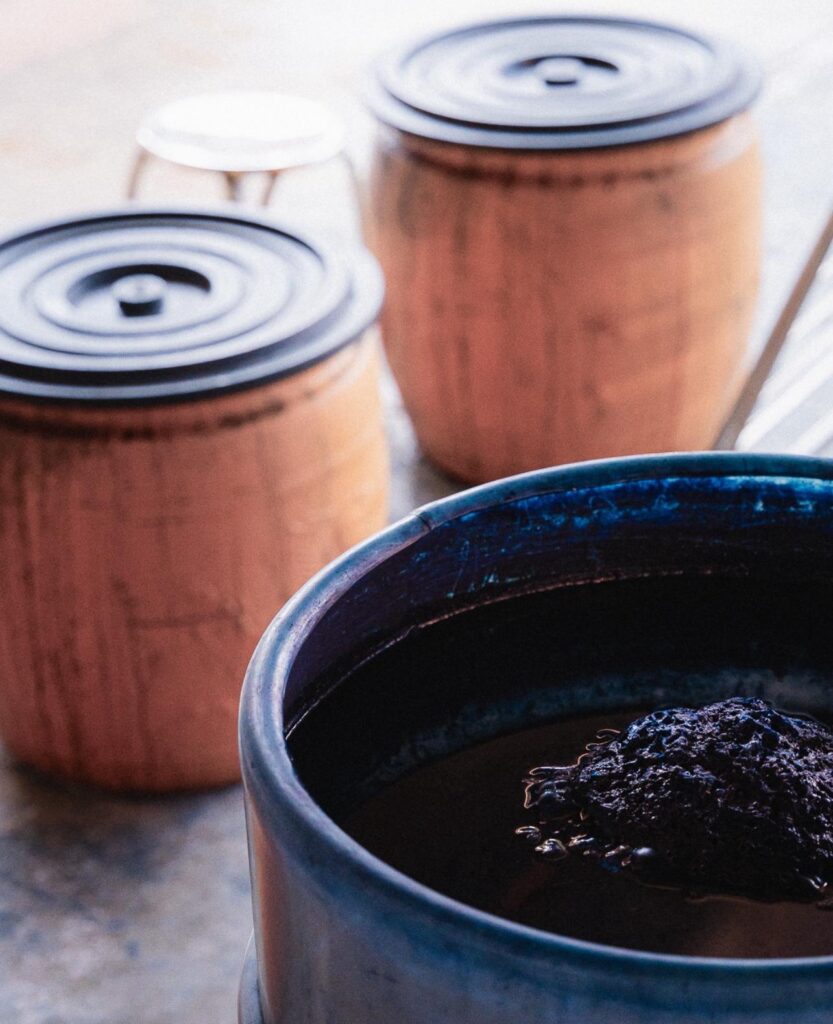
Khun Ann, the founder of Slowstitch Studio, shared with us more about her studio of slow stitches.
“Many of our pieces involve a meticulous technique known as shibori, or stitch-resist dyeing. In this process, the fabric is carefully stitched by hand, the threads are pulled to create compression, and the piece is dyed in either indigo vats or other environmentally friendly dyes. This time-intensive method, spanning several days, guarantees a distinctive outcome for each creation. The beauty lies in the fact that no two shibori textiles are identical, introducing an element of unpredictability. Rooted in our commitment to hand stitching and a deliberate, slow-made approach, we’ve chosen to name our brand Slowstitch Studio. Other than shibori, we also use techniques such as embroidery, screen-printing and other hand-dyeing techniques that align with the slow-made philosophy.”
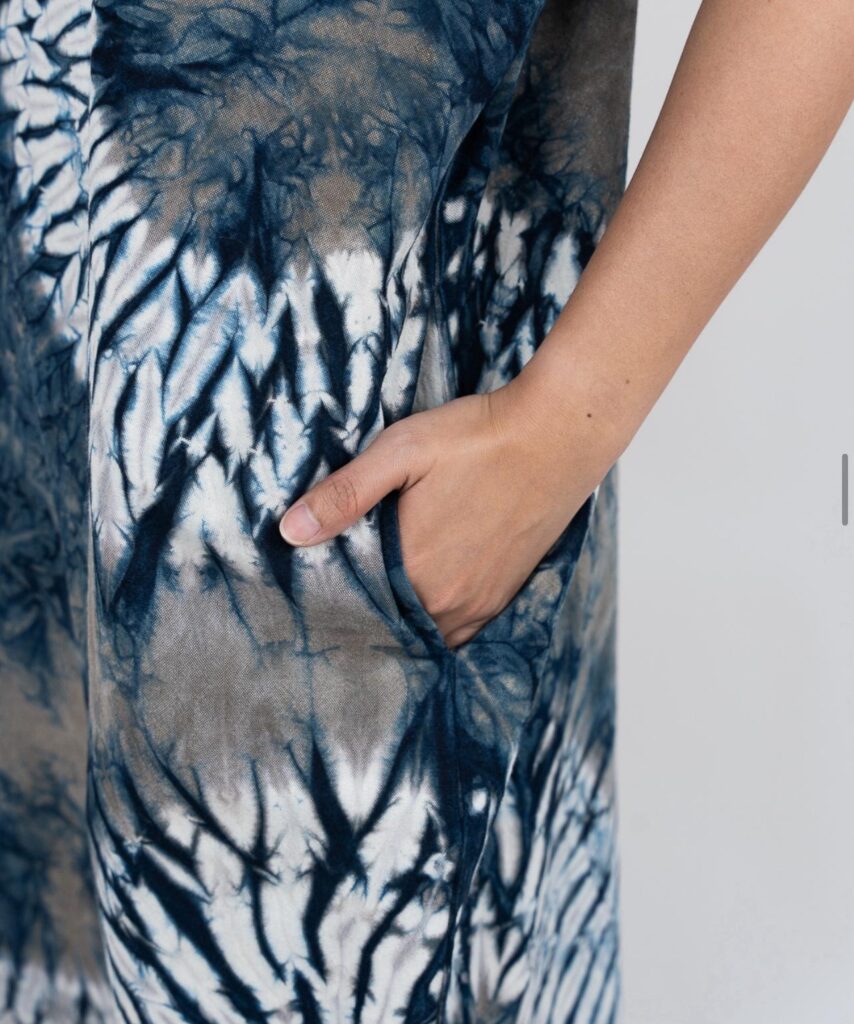
According to the textile scholar Yoshiko Iwamoto’s “Shibori: the Inventive Art of Japanese Shaped Resist Dyeing”, the technique actually originated in China. However, like most Chinese inventions, they were eventually adopted, transformed, and reintroduced to the world by other cultures. Nowadays, tie-dyed clothing is readily available in different cultures such as Bandhani in India, Bhakti in Southeast Asia, Amarra in Peru, and Adire in Nigeria.
Slowstitch Studio’s line of products and clothes from Thailand include scarves, garments, bags, and home décor items. Each piece showcases intricate patterns on textiles, which is the reason why its product shapes are intentionally kept simple. From wearable canvases in the form of scarves to everyday functional bags and thoughtfully crafted home décor, the brand’s aim is to create a fusion of simple and meticulous design while embracing the beauty of handcrafted work.
Sustainable and Ethical Clothes from Thailand
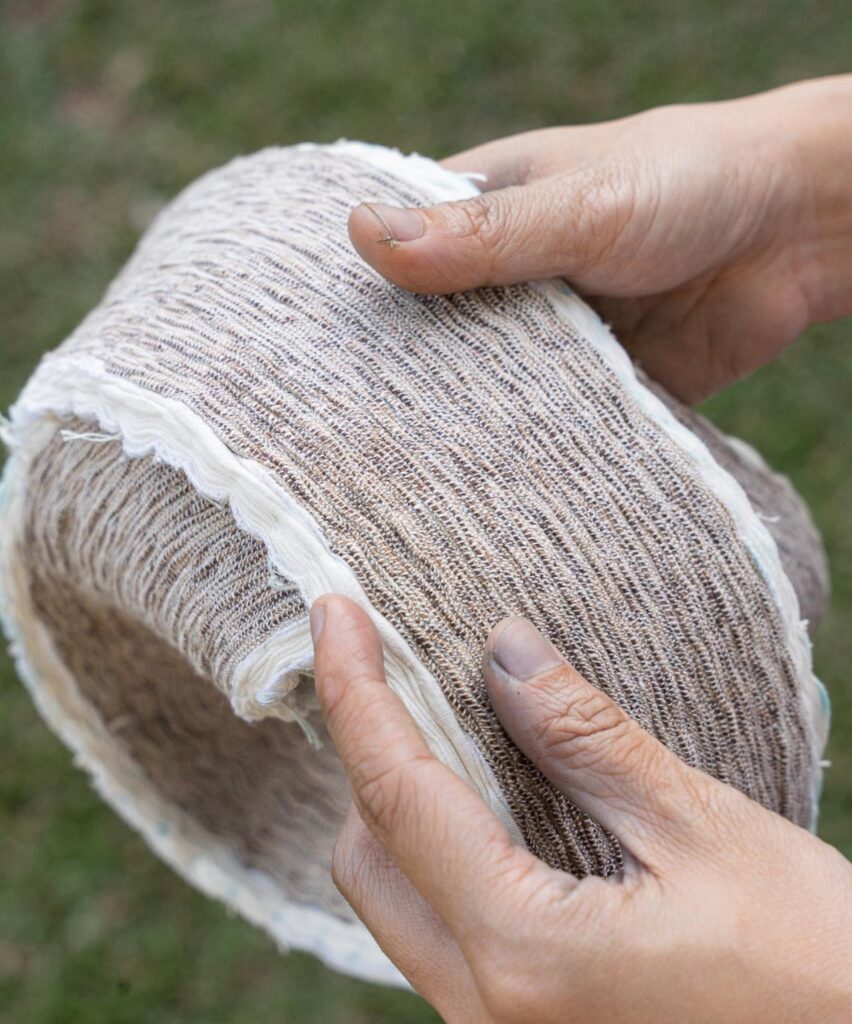
If you are someone who appreciates craftsmanship and prefers sustainable consumption choices, Slowstitch Studio is your cup of tea. All of their clothes from Thailand are made from natural fibres such as cotton, linen, silk, and hemp, aligning with their values of environmental responsibility. By utilising both natural and non-toxic synthetic dyes, Slowstitch Studio can cater to your desire for eco-conscious products that won’t compromise on aesthetic appeal.
“For example, this linen fabric already has some interesting dark brown threads woven into it which we will try to play with as part of the final dye design.” K Ann explained further on a stitched and bound fabric piece ready for dyeing.
Moreover, Khun Ann also employs a team of local women that she’s proud to call her fellow artisans.
Unlike many other textile studios, Slowstitch Studio never pays their staff by the piece, appreciating that rushing their work is impossible. Instead, the team is employed on a full-time basis, health and welfare schemes are provided, and they work in a clean, comfortable, safe, ventilated, and well-lit environment. As a result, the prices of the finished products are typically priced a bit higher than those of other Asian textile producers.
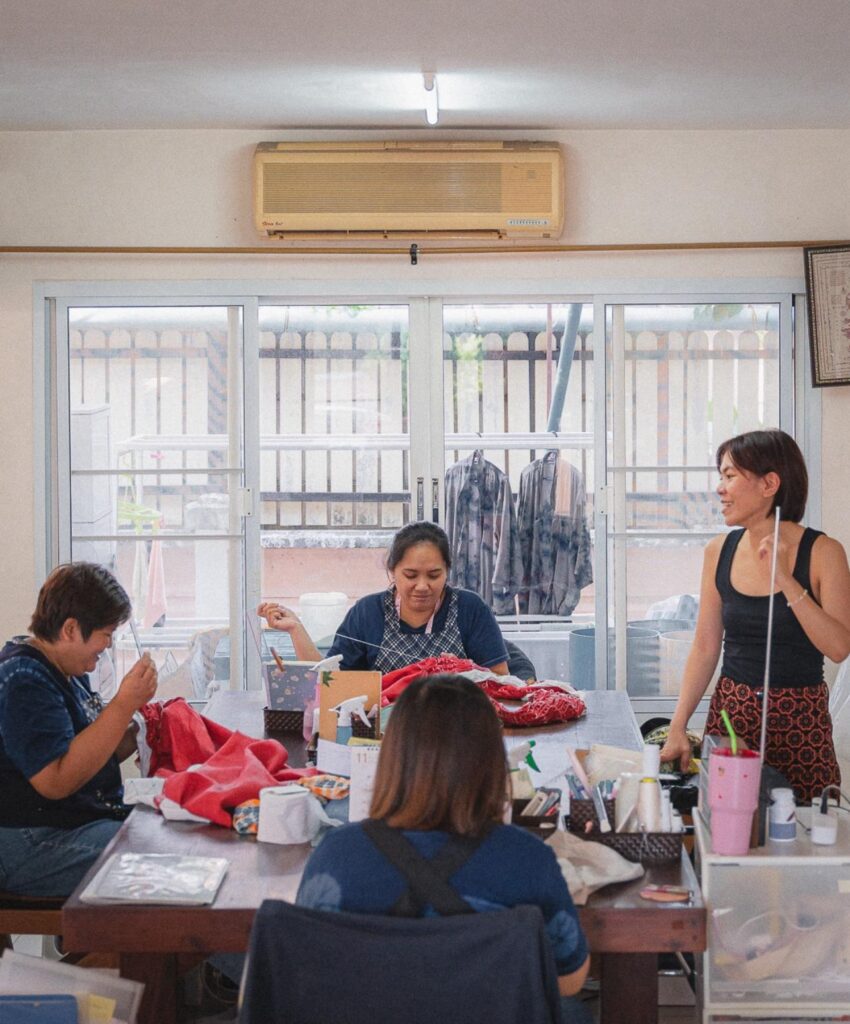
Khun Ann also shared with us the general caring of tie dye products such that we can appreciate them for years to come. “We recommend handwashing with mild detergent under 30 degrees. Wash indigo-dyed items separately or with other dark textiles to prevent colour bleeding. Minimise exposure to direct sunlight to maintain the vibrancy of colours.”
For as little as 900 THB, you can bring one-of-a-kind art de vivre pieces by Slowstitch Studio home. (At time of this blog’s creation, 1 USD is trading at at an exchange rate of 34.9 THB.) The more expensive products can cost as much as 32,000 THB depending on the cost of material and time taken to craft the piece. Some pieces could be crafted in 2-3 days while some can take weeks or months to stitch and dye. Intricate pieces of wall art can also be commissioned with a price tag ranging from 50,000 – 130,000 baht depending on the size and design. Overall, the most popular items are scarves and garments, followed by bandanas and bags.
If you ever visit Chiang Mai, Thailand, don’t forget to make a stop at the studio which is located within Jing Jai Market. Meanwhile, check out their online shop at www.slowstitchstudio.com.
Follow them on Facebook or on Instagram: @slowstitchstudio
